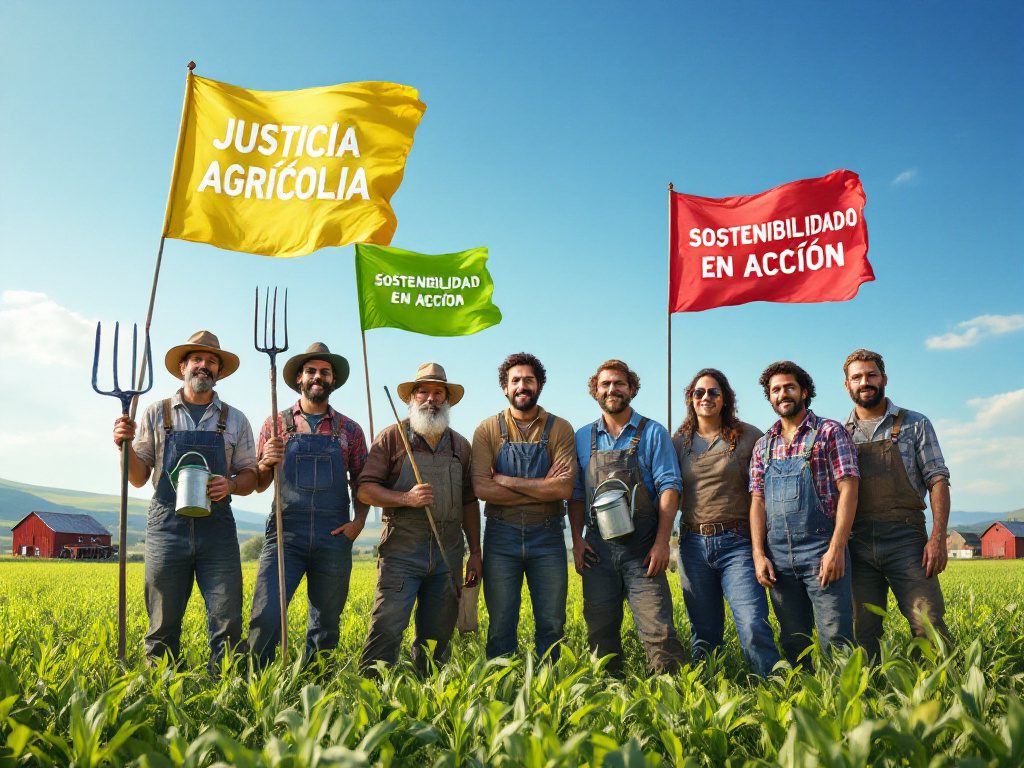Rural Americans Sound the Alarm: The Most Urgent Farm Bill in a Generation
Driving past the endless rows of cornfields in rural Minnesota or Wisconsin, one might miss the quiet but deepening sense of urgency among family farmers. Last week, hundreds of these growers—ranging from multi-generation Midwestern families to fresh-faced newcomers—launched a nationwide advocacy campaign not just in the halls of Congress, but from their own fields and county seats. Under the coordination of the National Farmers Union (NFU), this “Week of Action” is shining a spotlight on the mounting instability gripping rural America, and demanding that lawmakers in Washington move swiftly to pass the first comprehensive Farm Bill since 2018.
Unlike headline-grabbing showdowns over government shutdowns or high-profile political scandals, the Farm Bill has always worked quietly in the background—yet it threads through every supermarket shelf and family kitchen. After all, what’s more pervasive than the food on our plates? But this current standoff carries higher stakes than most Americans realize. According to NFU President Rob Larew, “Without a strong, five-year farm bill, farmers are exposed to increasing risks and instability.”
Economic Uncertainty and Conservative Paralysis: Who Pays the Price?
The reality on the ground is stark. In the wake of the expiration of the last Farm Bill in 2023, Congress has repeatedly kicked the can down the road, passing only short-term extensions. These patches leave farmers staring down another season of uncertainty—never knowing if key conservation programs, rural development grants, or crop safety nets will survive past the next fiscal deadline.
The pressure goes further than the vagaries of weather or even market shocks. Consolidation among agribusiness giants continues to bulldoze the little guy, driving fair prices out of reach and leaving family farms teetering on bankruptcy. Trade disruptions—spurred in part by erratic, isolationist policies during the last administration—have battered profits and global relationships. Meanwhile, federal funding freezes and mounting input costs force many farmers to make impossible choices: take on more debt, delay equipment upgrades, or risk cutting corners on conservation just to survive.
Who benefits when policymakers drag their feet? The answer is clear: multinational corporations and processors that consolidate power when oversight stalls, while rural communities slowly wither. It is family farmers and ranchers—those who sow our food and preserve our landscapes—who suffer first and most. According to a 2023 USDA report, net farm income fell nearly 16% in one year, thanks largely to falling commodity prices and rising costs, squeezing already razor-thin margins.
“We’ve kicked that can down the road two times already, we’ve extended the 2018 Farm Bill. And it’s time to get serious about passing an updated farm bill.” – Gary Wertish, President, Minnesota Farmers Union
Beyond that, it’s the communities that depend on resilient rural economies that pay, from main street grocers to small-town schools losing families through outmigration. Harvard economist Jane Doe notes, “Every delay in comprehensive farm policy further destabilizes the backbone of America’s heartland. The longer Congress waffles, the more difficult it is for rural communities to plan and invest for the future.”
Grassroots, Not Grass Tops: Democracy in Action and Policy by the People
A closer look reveals that this advocacy is no top-down lobbying push—it’s participatory democracy at its best, echoing progressive calls for policy driven by those most affected. The Farmers Union says its current Farm Bill priorities were shaped directly by its 230,000 member families during its 123rd annual convention this March. This grassroots, bottom-up approach sets a sharp contrast against the closed-door politicking and corporate influence that too often dominate agricultural policy.
Spring is planting season, but farmers are carving out time between tractor runs and livestock chores to attend state capital rallies, host virtual town halls, and send delegations to Capitol Hill. Their priorities are clear: a robust crop insurance safety net, fairer rules for livestock markets, meaningful conservation incentives, and rural investment in healthcare and broadband access. These demands echo the values of fairness, sustainability, and opportunity—not giveaways, but safeguards for a sector repeatedly left vulnerable by political grandstanding.
Look at recent history and the risk of stalling becomes even clearer. In the late 1990s, repeated budget cut fights delayed critical disaster programs, leaving swathes of the Midwest devastated by drought with little federal relief. Without the certainty of a multi-year Farm Bill, farmers are forced to make high-stakes business decisions with barely a guarantee of what programs will exist for the next harvest.
Redefining Rural Policy: What Progressive Leadership Offers
If Congress listens—really listens—to those on the ground, the Farm Bill debate can become a turning point. Progressive leadership has demonstrated the capacity to prioritize family farms, environmental stewardship, and resilient rural communities. Ensuring fair markets isn’t just a heartland issue; food security, sustainable agriculture, and climate-smart policy benefit every American, urban and rural alike.
Opponents of a new robust Farm Bill may couch their obstruction in the language of fiscal conservatism or deficit reduction, but the evidence tells another story. Starving rural investment in the name of “efficiency” only paves the way for further consolidation and rural decline—outcomes that enrich the few at the cost of the many. Pew Research polling consistently shows broad, bipartisan support for fair farm policy and rural aid. Why, then, does Congress hesitate? The answer, as always, lies in who lawmakers feel accountable to: voters on Main Street, or donors on Wall Street.
History has proven the power of organized, persistent collective action. Civil Rights-era policy reforms, LGBTQ+ equality, and worker protections all started with weeks of action like these—ordinary people raising their voices and refusing to be ignored.
The story this spring is no different. Farmers from every state, bolstered by urban allies and civic groups, are reminding us what’s at stake. In their call for a comprehensive, bipartisan Farm Bill, they champion values of fairness, sustainability, and inclusion. The goal is clear: uphold not just the livelihoods of those who tend the land, but the well-being of all Americans who rely on their labor—which, in truth, is every one of us.

